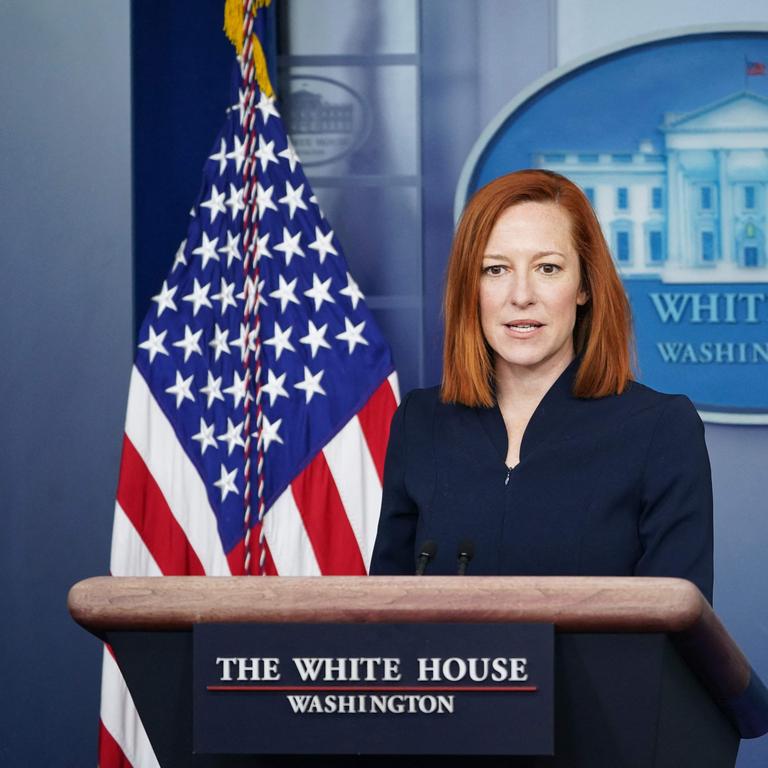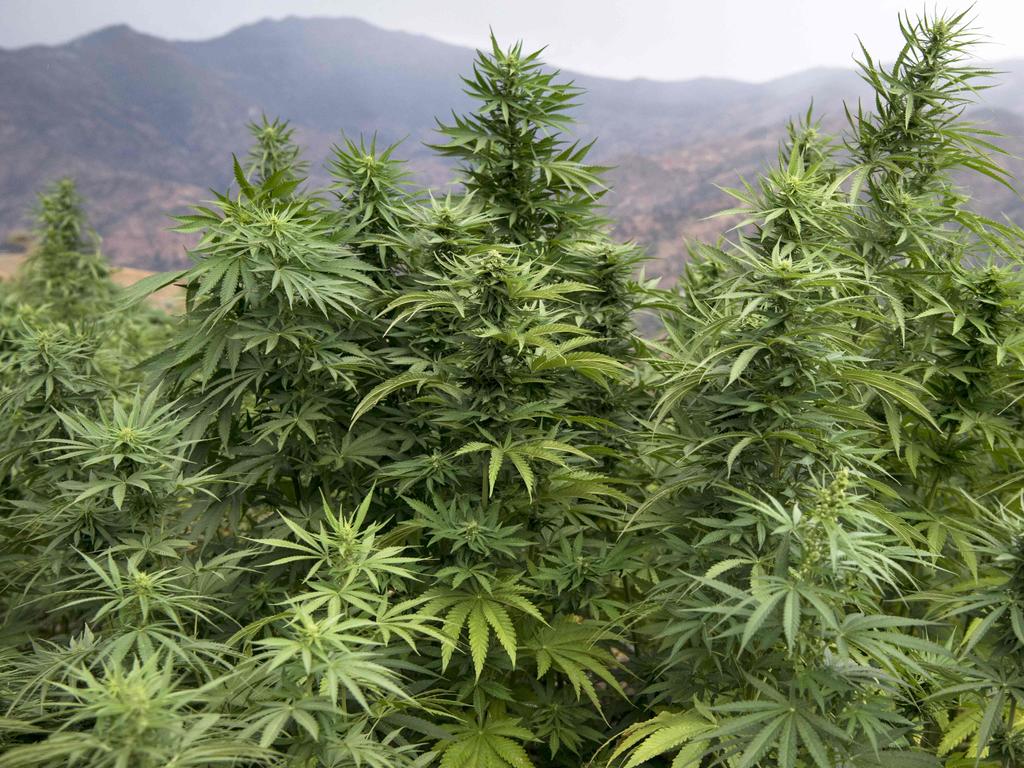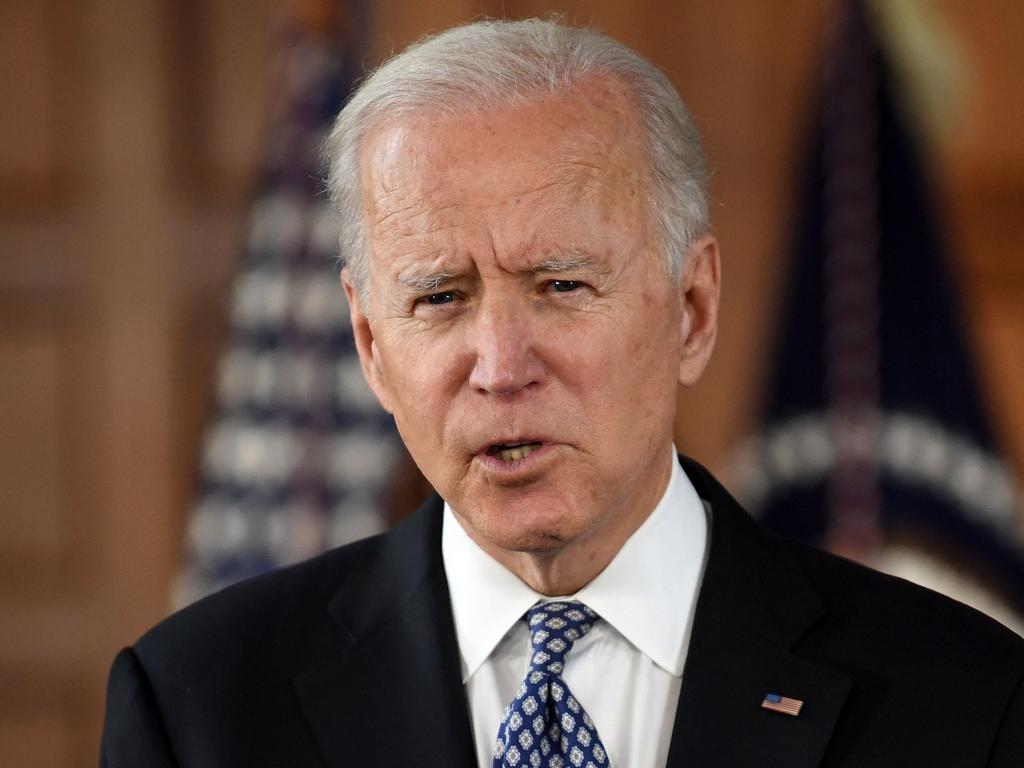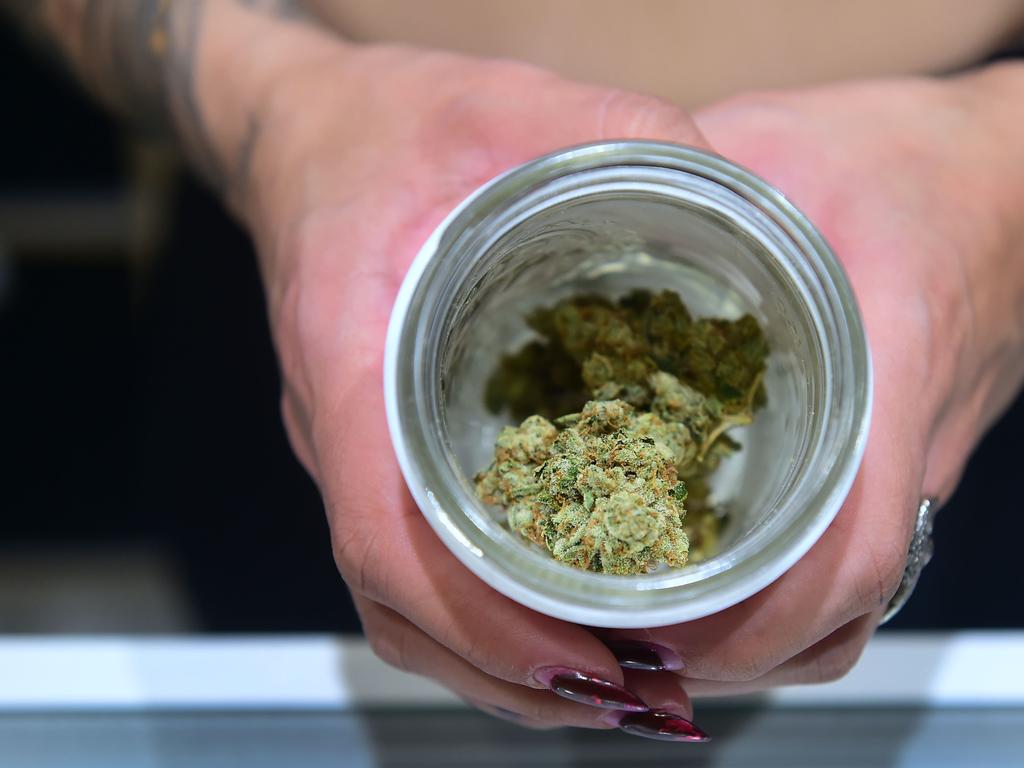Five White House staffers fired from Biden Administration for past cannabis use
Five White House staffers have been fired over past cannabis use, even though they may have broken no laws as it is legal in many states.
Five staffers who recently joined the White House have had their employment cut short after being fired for prior cannabis use, despite changes to policies that forbid past drug users from working at the White House.
The White House press secretary Jen Psaki confirmed five people had been fired for prior drug use, out of “hundreds” more that had been hired, including some she said wouldn’t have had a chance before.
RELATED: Footage shows Biden falling repeatedly

RELATED: Joe Biden’s latest concerning gaffe
“The White House had worked with the security service to update the policies to ensure that past marijuana use wouldn’t automatically disqualify staff from serving in the White House,” Ms Psaki said on Twitter.
“As a result, more people will serve who would not have in the past with the same level of recent drug use. The bottom line is this: of the hundreds of people hired, only five people who had started working at the White House are no longer employed as a result of this policy,” Ms Psaki said.
RELATED: Armed man nabbed at Kamala’s mansion
As a result, more people will serve who would not have in the past with the same level of recent drug use. The bottom line is this: of the hundreds of people hired, only five people who had started working at the White House are no longer employed as a result of this policy.
— Jen Psaki (@PressSec) March 19, 2021
RELATED: Biden’s dig at Trump in prime time speech
According to an NBC News report from late last month shared by Ms Psaki, the Biden Administration was struggling to fill key positions in the White House due to the prevalence of recreational cannabis use.
Cannabis is legal in 15 states, as well as the District of Columbia, where the White House is, but it’s not yet federally legal.
It’s decriminalised in a further 16 states, while in some other states it’s legal only for medical use, sometimes with restrictions on what forms it comes in.
Only Idaho and Nebraska don’t allow any legal cannabis use, but in the latter it’s decriminalised for first offenders.
Past drug use can prevent people getting Top Secret security clearance they need for some positions in the White House.
The change to policy allowed for a waiver to be given on a case-by-case basis for people with “limited” dalliances with the drug — who would be working in positions that don’t ultimately require the clearance.

NBC News quoted an unnamed White House official who “emphasised that the policy applies only to marijuana use, and even under the new policy, some appointees would still not be granted a waiver given the extent of their acknowledged marijuana use”.
Those who are granted a waiver are required to cease all use and submit to random drug tests, as well as being required to work remotely for an unspecified period of time from when they last acknowledged they consumed cannabis.
Mr Biden is hardly an advocate for cannabis legalisation, in fact he’s been opposed to it on many occasions in the past.
Having first entered US federal politics as a Senator in 1973, a position he held until becoming Vice-President of the Obama Administration in 2009, it’s unsurprising Mr Biden would have held prior opposition to the legalisation of cannabis, which the first states (Washington and Colorado) didn’t start allowing until 2012.
During the campaign Mr Biden didn’t go as far as pushing for the full legalisation or even decriminalisation of cannabis, but he did propose expunging past cannabis convictions.

Some of those would include the close to 2000 convictions his Vice-President Kamala Harris pursued during her time as San Francisco’s district attorney, when “her prosecutors appear to have convicted people on marijuana charges at a higher rate than under her predecessor” according to San Jose’s Mercury News.
Former lawyers in her office said most of those convictions didn’t result in actual jail time, and a public defender on the other side of the said there was “no way anyone could say that she was draconian in her pursuit of marijuana cases”.
Campaign aides told The Atlantic last year Mr Biden’s stance was based on concerns over public health, and that he was still “looking for something definitive to assure him that legalising won’t lead to serious mental or physical problems, in teens or adults”.
Mr Biden instead said decriminalisation and legalisation is a matter for the states.

That’s the way it was being handled by the end of the Obama Administration.
In a 2013 memo from then deputy Attorney-General James Cole, state governors were informed that the federal government was “deferring its right to challenge their legalisation laws at this time”, but that stance was rescinded by former President Donald Trump’s Attorney-General Jeff Sessions in 2018, who advised state attorneys “to use previously established prosecutorial principles that provide them all the necessary tools to disrupt criminal organisations, tackle the growing drug crisis, and thwart violent crime across our country”.
The guidance came despite Mr Trump’s stance during the campaign that cannabis legislation should be left up to the states.
During recent confirmation hearings, Mr Biden’s Attorney-General Merrick Garland backed up the current President’s stance that it should be left for the states to decide.
“Criminalising the use of marijuana has contributed to mass incarceration and racial disparities in our criminal justice system … and has made it difficult for millions of Americans to find employment due to criminal records for nonviolent offences,” Mr Garland wrote.
That number is now “millions plus five” with the firing of White House staffers.



